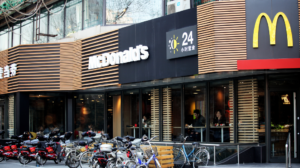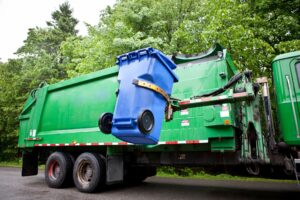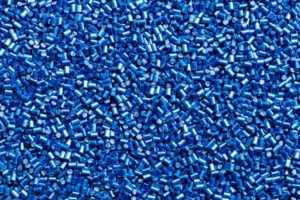Industry Plastics Initiatives
Canadian organizations have made progressive commitments to reduce plastic pollution through plastic bans, incorporating post-consumer recycled (PCR) content in products/packaging, and innovative reuse programs.
This resource outlines the growing list of industry plastics initiatives in Canada. Know of an initiative not listed here? Send us an email.
PCR-Related
Vegpro: the largest fresh baby lettuces producer in Canada has teamed up with Cascades, a leader in eco-friendly recovery, packaging, and hygiene solutions, to replace all Fresh Attitude salad containers, traditionally made from virgin plastic, with 100% recycled and recyclable plastic containers. Custom-designed for Vegpro by Cascades, the containers are manufactured at the Cascades Inopak plant in Drummondville, Que.
Ice River Springs: first beverage company in North America to collect blue box materials to produce 100% recycled plastic bottles, using no new plastic.
- Hellmann’s: as of March 2020 all mayonnaise jars and bottles are made with 100% recycled plastic.
- Dove: made a 2025 commitment to reduce the manufacturing of more than 20,500 tonnes of virgin plastic per year by:
- Making the iconic beauty bar packaging plastic-free globally
- Launching new 100% recycled plastic bottles
- Trialing a new refillable deodorant format that radically reduces plastic use
Coca-Cola Canada: made a goal to use 50% recycled materials in all packaging by 2030, and packaging 100% recyclable globally by 2025
Keurig Dr Pepper Canada: made new packaging targets that aim to convert to 100% recyclable or compostable packaging and use 30% post-consumer recycled content across packaging portfolio by 2025.
MARS: made a goal to have 30% average recycled content in plastic packaging by 2025.
Pepsico: striving to use 25% recycled content in all plastic packaging by 2025.
Plastic Bans
Lowe’s Canada: announced introduction of a charge on plastic bags at its corporate stores in Quebec in June 2018, and in the rest of Canada in August 2018. In 2019, the customers used 58% fewer plastic bags than in 2017, which represents about 10 million bags. In 2018, the introduction of the charge mid-year resulted in over 5 million fewer plastic bags being used in corporate stores versus the previous year.
Aldo Shoes: redesigned its shoe box to eliminate the need for single-use plastic shopping bags.
The Beer Store: as of January 2020 eliminated single-use plastic bags at all retail locations.
Starbucks Canada: in 2019 launched a new cup that will replace the need for single-use plastic straws.
Single-Use Plastic Alternatives / Reuse Programs
FoodX Technologies: provides technology to retailers and food service companies for operating closed loop delivery services that enable the use of innovative reusable materials instead of problematic plastics.
Farm’r: popular casual farm-to table dine-in and take-out restaurant in downtown Toronto launched a reusable take-out container program in September 2019. Customers pay deposit of $4 for containers, which is returned when they are brought back for reuse. The takeout containers are washed and sanitized before every use.
McDonald’s Canada: in 2019 unveiled two “Green Concept Restaurants” in London, ON and Vancouver, B.C. These restaurants will act as incubator locations to test new packaging options and recycling initiatives. The first innovations being tested include:
- A fully re-pulpable cup for cold beverages: Canadian quick service restaurant (QSR) first – the cup uses an aqueous coating that is acceptable in recycling streams.
- New fibre lids : Canadian QSR first:
- Product is made from 100% Forest Stewardship Council (FSC) certified wood fibre and is recyclable
- Help reduce straw use as guests can sip from it directly
- Tested on all three cold cup sizes
- Wooden cutlery
- Wooden stir sticks
- Paper straws
Carlsberg: In June 2018 announced a series of ground-breaking innovations including its new Snap Pack, which is set to reduce plastic waste globally by more than 1200 tonnes a year – the equivalent to 60 million plastic bags.
Corona Canada: Starting in October 2019 replacing all plastic packaging on its cans on Canadian store shelves with new compostable cardboard packaging.
KFC Canada: In 2019 eliminated plastic bags and straws from all restaurants and in July 2020 announced making its buckets from bamboo, eliminating 55 tonnes of plastic waste annually.
Recipe Unlimited: Canada’s largest full-service restaurant company that includes 1,400 restaurants in more than 300 communities: Swiss Chalet, Harvey’s, St-Hubert, The Keg, Milestones, Montana’s, Kelseys, East Side Mario’s, New York Fries, Prime Pubs, Bier Markt, Landing, Original Joe’s, State & Main, Elephant & Castle, The Burger’s Priest, The Pickle Barrel.
- in 2018 eliminated plastic straws from all of its restaurants.
- in 2019 removed delivery and take-out plastic bags
A&W: in 2018 switched to 100% compostable, biodegradable, and marine degradable paper straws.
IKEA: by January 2020 phased out all single-use plastic products from their global home furnishing range as well as plastic cutlery in its restaurants.
Walmart Canada: implemented Plastic Waste Reduction Strategy eliminating:
- Plastic wrap from organic bananas bunches and single peppers
- Single-use plastic cutlery from cafeterias at corporate offices and distribution centres
- Single-use plastic straws and replaced with paper alternatives
Retail Council of Canada: Retail is Canada’s largest employer with 2.1 million Canadians working in their industry. Represents more than 45,000 storefronts in all retail formats, including department, grocery, specialty, discount, independent retailers and online merchants.
- Supported plastics announcement in 2019: “Harmonized action will provide a much better environmental outcome than having hundreds of municipalities taking widely differing approaches on this issue” – Philippe Cantin, RCC.
Grocery Chains:
- Metro Inc. introduced a policy in 2019 allowing customers to buy meat, fish, and pastries using their own containers in Quebec.
- Sobeys, owned by Empire Co. Ltd., removed plastic bags from its stores in January 2020: eliminating plastic bags from 255 locations removing 225 million plastic bags from circulation a year.
- Loblaw started a partnership with TerraCycle whereby Toronto pilot participants would be able to receive select products from President’s Choice and other leading national brands in reusable containers delivered to their doors.



